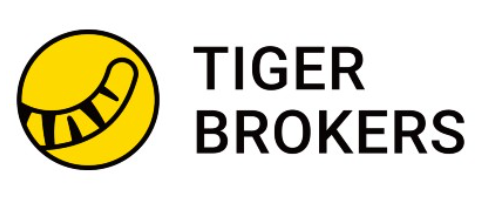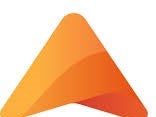
Sharesies rated number one for customer satisfaction
Our review compares online share trading providers on customer satisfaction, so you can discover what other Kiwis think about our compared providers and choose the best one for your trading needs. Think of it like asking hundreds of your closest friends and family members which online share trading providers they think deliver the best features, service and value for money.
Canstar surveyed 1272 Kiwis with share trading accounts and asked them for their feedback on their choice of providers.
Respondents rate their satisfaction with their online share trading providers from zero to ten, where zero is extremely dissatisfied and ten is extremely satisfied. Brand satisfaction was rated by respondents on the following criteria:
The winning online share trading provider is the one that receives the highest Overall Satisfaction rating once all the scores from the Overall Satisfaction criteria are combined and averaged.
Brands must have received at least 30 responses to be included, so not all brands available in the market have been compared in this survey. The brands rated in this survey are listed below in order of best overall satisfaction.
Find more information on our Most Satisfied Customer methodology.

 Congratulations to Sharesies, the winner of Canstar’s Most Satisfied Customers Online Share Trading Award 2025.
Congratulations to Sharesies, the winner of Canstar’s Most Satisfied Customers Online Share Trading Award 2025.
In this year’s award research, Sharesies achieves a clean sweep of top 5-Star ratings across all our award categories, placing it well ahead of its competitors in our consumer research and earning it Canstar’s 2025 Share Trading Award.
Sharesies is a homegrown online investment platform that was founded in 2016.
Through Sharesies, you can invest in over 6700 companies, ETFs and managed funds across NZ, Australia and the US.
It provides access to the New Zealand Stock Exchange (NZX), Nasdaq, New York Stock Exchange (NYSE), Chicago Board Options Exchange (CBOE), and the Australian Securities Exchange (ASX).

Hatch gives you easy access to the US share markets. Through Hatch, you can buy shares in individual companies and exchange traded funds (ETFs).

As well as NZ Stocks, Tiger Brokers provides access to international markets including the Australia, China, Hong Kong, Singapore and the US.
Tiger also offers welcome promotions, including zero transaction fees for four US and ASX shares trades each month, for the life of your account.

ASB Securities is a service offered by ASB. Through an ASB Securities share trading account, you can invest in more than 170 companies listed on the NZ stock exchange (NZX) and over 2000 equities listed on the Australian stock exchange (ASX). Other overseas markets can be accessed through ASB’s broker team.
Unlike many other online share trading platforms, which trade on your behalf, ASB Securities provides do-it-yourself direct trading. This means you own the shares outright.
Not all brands in the market qualify for our ratings (based on minimum survey sample size), but that doesn’t mean they’re not worth considering. Here are other brands to check out:

Unlike other online trading portals, CMC Markets only offers contract for difference (CFD) trading. CFDs allow you to speculate on the rising or falling prices of financial assets without actually owning them, for example currencies and cryptocurrencies, commodities, shares and ETFs and government bonds.
CMC Markets has two trading platforms. The company’s platform, Next Generation, and MetaTrader 4, a common platform used by most forex and CFD brokers.
CMC Markets has over 12,000 CFD markets to trade across forex, indices, commodities, shares, ETFs and treasuries. CMC Markets does not offer share trading.

Invest Direct is a DIY share-trading account offering access to New Zealand, Australia, US and UK markets through a desktop or mobile browser. It is owned and operated by Hatch Invest.
Unlike many other online share trading platforms, which trade on your behalf, Invest Direct provides do-it-yourself direct trading. This means you own the shares outright.

ShareMeUp is a micro-investing app that allows you to invest in selected NZX-listed shares. You can invest between $50-$500 on a weekly, fortnightly or monthly basis.

Stake is an Australia-based fintech company. It offers Kiwis the opportunity to invest in over 9500+ US stocks and ETFs.

Superhero is an Australian trading platform that was established in 2020. It enables users to buy and sell shares and EFTs across the Australian and US markets.
Online share trading allows you to use a web-based or app platform to buy and sell shares in companies and funds that are listed on a stock exchange. Online share trading platforms can be a relatively simple and inexpensive way to invest in the share market.
You can start online share trading with just a few dollars, and associated fees can be as low as $3.
Online share trading platforms offer accounts where you can deposit cash and then use those funds to invest in shares. In return for a fee (known as brokerage), online share trading providers act as a go-between or broker, enabling you to buy and sell shares in companies and other investment options, such as exchange traded funds (ETFs).
Your investments, or holdings, are typically listed when you log in to your account. Most platforms allow you to monitor your portfolio’s performance over time, access market research and other data to help you make investment decisions.
While some online share trading platforms in NZ offer access to the NZ share market (predominantly via the NZX), others only allow you to buy and sell on international markets, such as in Australia, Hong Kong and the US.
It’s a good idea to be aware of any fees and other costs that an online share trading platform may charge. Some of the more common fees include:
A brokerage fee is charged by online share trading platforms to process any transaction you make to buy or sell any shares. The fee is often calculated based on the amount of the total transaction or set as a fixed fee.
Some platforms may charge you a regular fee for managing your online trading account. For example, this could be a monthly or annual maintenance fee, or an optional subscription fee to provide you with regular market data. Not all platforms charge this.
Some trading platforms may charge a custody fee if you don’t make any trades in a set period of time (e.g. a year). This is also known as an inactivity fee.
This is a foreign currency transaction fee, charged by the share trading platform to convert your NZ$ into the relevant currency for trades made on an overseas market, and then back again into NZ$. These fees can quickly add up, especially if the the strength of the NZ dollar works against you. For more details, read our story Buying OZ or US Stocks? Beware the Exchange Rate!
To trade shares online, you use your chosen online share trading platform to place orders on particular stocks or groups of stocks in a fund, such as an exchange traded fund (ETF).
You will usually be given an option of whether you wish to buy at market value, when the particular market is open and trading, or limit the order to a particular price set by yourself.
You need to make sure you have sufficient funds in your online account to cover any purchase costs, including any brokerage fees or other charges. If you don’t, you may incur an additional charge.
If your order is successful, the shares you’ve bought will appear in your online account so you can track their price and performance, and that of your overall portfolio. If you decide to sell your shares, you can place a sell order via your online share trading platform.
There are two ways you can typically aim to make money through shares: capital growth and dividends. Here’s an overview of each.
The old adage of “buy low, sell high” sums up one way investors aim to make money on the share market. The idea is that you buy shares in a company (or group of companies through a fund) that you believe will increase in value over time, then sell them for a profit if that happens. This increase in the value of an asset is known as capital growth.
Of course, shares can fall in value too, resulting in a capital loss if you sell them for less than you paid initially. This is why it’s important to research your investments carefully and why you may consider seeking independent professional advice before making big financial decisions.
If you own shares in a company, you may receive a regular payment from the company based on any profit it has made. These payments, based on the number of shares you own, are known as dividends. For some investors, this can provide a stream of income.
But not all companies pay dividends. Some may choose to reinvest any profits they make. Bear in mind, too, that companies don’t always make a profit, so when times are tough, companies may pay smaller or fewer dividends, or none at all.
Remember, you may need to pay tax on any income you receive through investing, either from dividends or capital gains. Speak to a financial advisor or tax accountant if you need help navigating these tax implications.
Before investing in shares, it is important to consider the risks and to seek professional advice if you need it. Some of the possible pitfalls to consider include:
If you invest in shares, there is always a risk that you will lose some or all of the money you have invested. For example, if the company whose shares you have purchased goes out of business, you may not get any of your money back.
Unlike keeping your money in a bank account, with shares, the value of your investment can go up and down quite frequently. If you need to sell your shares at a time when the market is down, this could mean losing money.
While the process of buying shares can be relatively straightforward, knowing how best to invest can require expertise and extensive research, particularly if you are investing in individual companies rather than through a fund.
If you have purchased shares, converting them back into cash can take several days, meaning you may not be able to access those funds at short notice in the case of an emergency. For this reason, investing in shares is generally viewed as a long-term way of building wealth, rather than a way of keeping your savings secure.
Investing in shares can be risky but there are a number of things you should consider to help manage that risk.
The idea is to spread your investments across multiple companies and even different asset types, such as cash, shares, bonds and property, to avoid the overall value of your investments dropping should a single company’s share price fall.
You may also consider spreading your investments out over time so you reduce the risk of investing all your money in one go, say for example, the day before a market crash. This strategy of spreading your investing out over time, to smooth out the impact of volatility on your investments, is known as dollar cost averaging.
Reading up on the companies and sectors you are interested in can help you invest with your eyes open, rather than simply hoping for the best. Remember, investing without knowledge is just speculation and relies on luck.
Fortunately, there are plenty of resources available to help you, and many online share trading platforms offer their own educational and reference tools. It’s important to look to reputable sources of information, and to seek professional advice if you’re unsure about how best to invest.
If you’re tempted to dip your toe in the share market, you might first want to consider an investing simulator, before opting for the real deal. A simulator allows you to try investing using virtual cash to see how the process works.
You can create a practice portfolio using online tools at sites such as Yahoo Finance, MSN Money and Google Finance.
As with all aspects of your finances, if you decide to use an online share trading platform it’s important to be vigilant for potential scams and to take steps to keep your personal information secure.
The Financial Markets Authority (FMA) lists a range of different scams on its website, but the three main types of investment scams to be aware of are:
Scammers may promise high returns and no or limited risk to entice you into investing and parting with your money.
To avoid falling victim to an investment scam, you could consider taking precautionary steps such as:
The two general areas to research when deciding which online share trading platform is best for your investment requirements are price and features:
One of the most crucial factors in terms of value for money for online share trading is how much it costs to invest and trade. This includes the cost to place a trade (brokerage), foreign currency transaction fees, and any ongoing costs for maintaining an account with that platform.
The main features to look for include:
And whether you are investing by yourself on an online investment platform, or using a financial advisor, always make sure that you’re dealing with a licensed provider. Being licensed means they are authorised by the FMA and are adhering to a specific code, such as treating clients fairly and with integrity. Click here for more about getting financial advice.
 About the author of this page
About the author of this pageBruce Pitchers is Canstar NZ’s Content Manager. An experienced finance reporter, he has three decades’ experience as a journalist and has worked for major media companies in Australia, the UK and NZ, including ACP, Are Media, Bauer Media Group, Fairfax, Pacific Magazines, News Corp and TVNZ. As a freelancer, he has worked for The Australian Financial Review, the NZ Financial Markets Authority and major banks and investment companies on both sides of the Tasman.
In his role at Canstar, he has been a regular commentator in the NZ media, including on the Driven, Stuff and One Roof websites, the NZ Herald, Radio NZ, and Newstalk ZB.
Away from Canstar, Bruce creates puzzles for magazines and newspapers, including Woman’s Day and New Idea. He is also the co-author of the murder-mystery book 5 Minute Murder.
Research companies before investing: 53%
Only invest in shares because of the ease of the apps: 40%
Have lost money share trading: 34%
Have been surprised by fees: 16%
Few times per year: 31%
Monthly: 21%
Weekly: 16%
Fortnightly: 15%
Annually: 7%
Up to $50: 31%
$51-$100: 19%
$101-$250: 11%
$251-$500: 9%
$501-$1000: 9%
$1001-$5000: 9%
$5001-$10,000:3%
>$10,000: 3%
New Zealand: 53%
US: 36%
Australia: 6%
Asia: 1%
Europe: 1%
Canstar surveyed 5053 New Zealand consumers across a range of categories to measure and track customer satisfaction, via ISO 26362 accredited research panels managed by PureProfile. The outcomes reported are the results from respondents who have an online share trading and have traded in the past 12 months. In this case, 1272 New Zealanders. Brands must have received at least 30 responses to be included. Results are comparative and it should be noted that brands receiving three stars have still achieved a satisfaction measure of at least six out of 10. Not all brands available in the market have been compared in this survey. The ratings table is first sorted by star ratings and then by mean overall satisfaction. A rated brand may receive a ‘N/A’ (Not Applicable) rating if it does not receive the minimum number of responses for that criteria.
The past winners from Canstar’s Online Share Trading ratings:

Banking & Insurance - April 23rd
Booster Savvy delivers all the handy features of a digital wallet, and more! Not only does it provide a range of functions to help plan your finances and supercharge your savings, it also offers a great…
– Read more